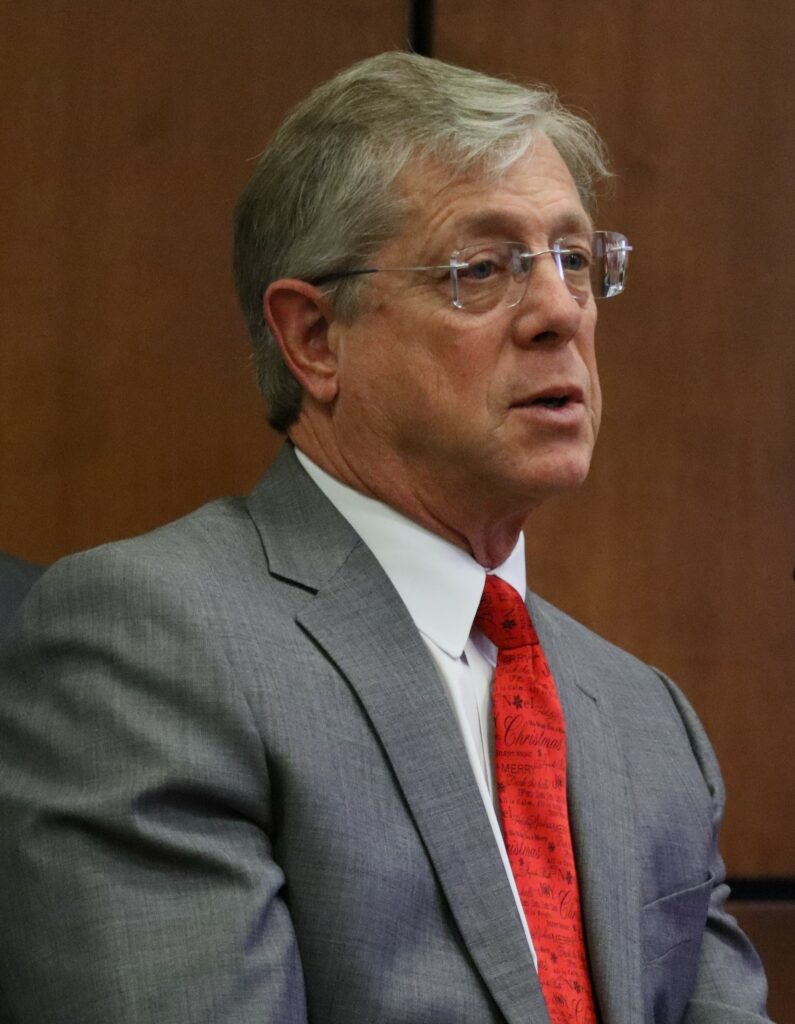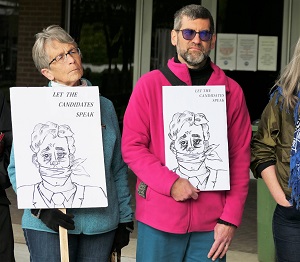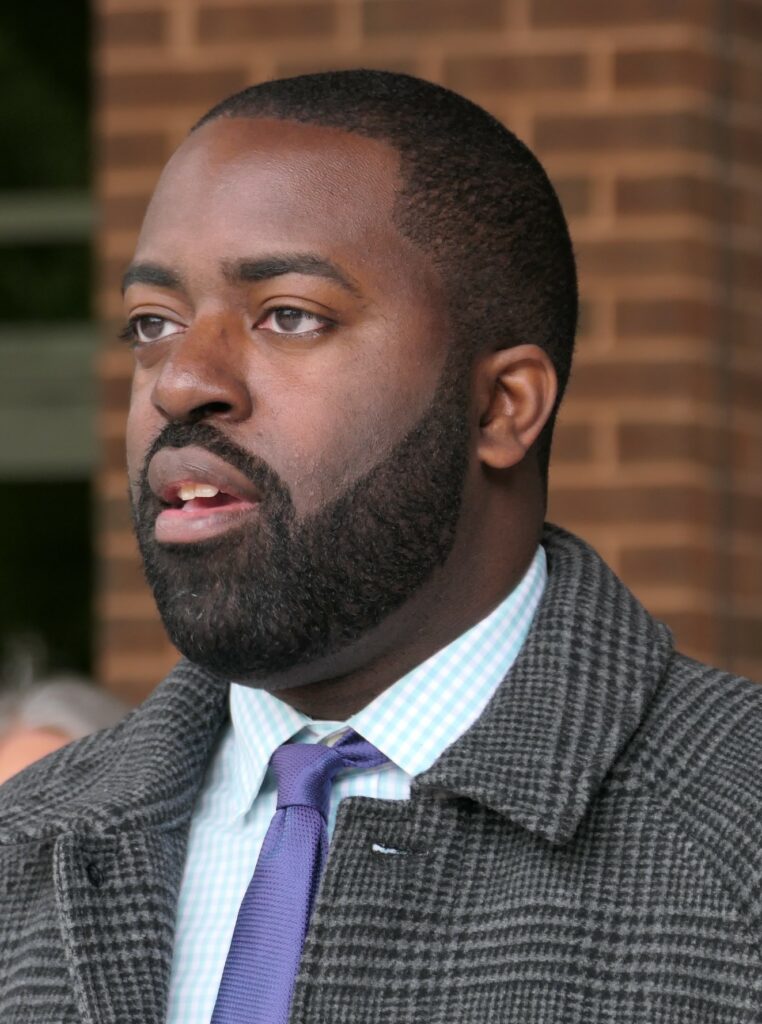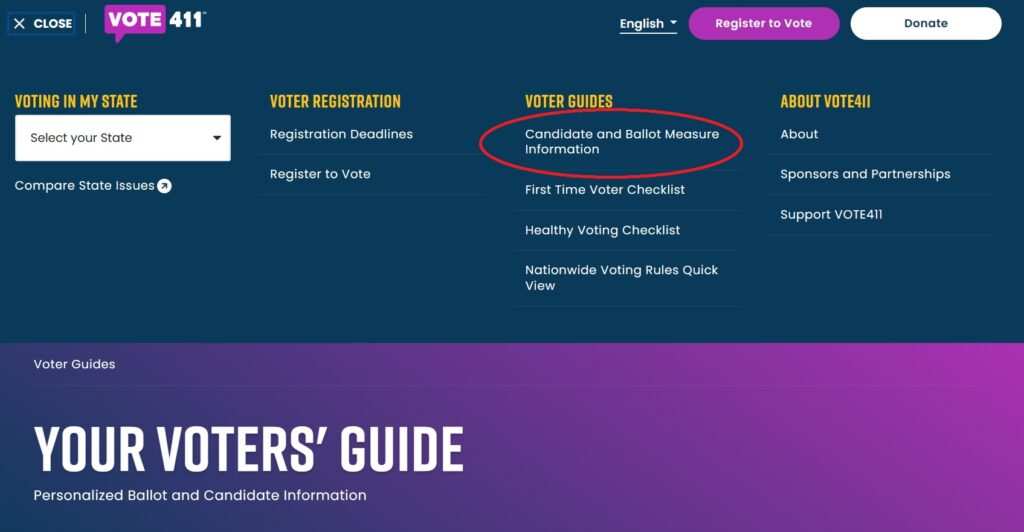
A coalition of groups pushing for bail reform and other judicial and correctional policy changes in Lancaster County is crying foul after President Judge David Ashworth instructed district judge candidates in the upcoming primary election not to answer the coalition’s voter education questionnaire.
At a media conference Tuesday in Binns Park, leaders of the Lancaster County Bail Reform Coalition accused Ashworth of interfering with free speech and suppressing information voters deserve to have.
“Judge Ashworth has overstepped his administrative duties,” said the Rev. Jason Perkowski of POWER Interfaith, a Coalition member. “He has silenced candidates on a matter voters should be concerned about: fairness and transparency in the setting of cash bail.”
“Answering a simple survey is not the deadly sin that the president judge made it out to be,” said Michelle Batt, founder of the Lancaster Bail Fund. She pointed to county court judge candidates answering questions in LNP.
Ashworth, for his part, says the survey is slanted and impossible to answer in good faith.

“The court (which includes MDJs) is not averse to receiving legitimate input from the community in an ongoing effort to improve our system,” he said in an email. “However, it will not be forced into answering questions when the questions are drafted to advocate a particular agenda and can be misunderstood.”
The survey (PDF) consists of eight questions on bail and pretrial policy. Candidates are given four options, from “Strongly agree” to “strongly disagree,” and there is space for them to elaborate on why they checked the answers they did.
Answering some of the questions, Ashworth said, would require violating the state Code of Conduct for district judges. In his email to the coalition, he cited Rule 4.1, which among other things bars candidates from making “pledges, promises, or commitments” that could compromise their impartiality.
Other questions, he said, were on matters that are outside of district judges’ purview; still others “were worded in a misleading manner and any answer could have been misconstrued or misrepresented.”

He made it clear he considers the survey different from others that judicial candidates have answered. It seemed, he said, to be an “end run” around the precedent that the president judge speaks on behalf of the court system. Accordingly, he said, he and the leadership of the county district judge’s association made the decision they did.
“If the coalition truly wants meaningful answers to legitimate questions, perhaps it would be of value to discuss the questions with the court in advance,” he said.
The controversy comes as 13 of the county’s 19 district court seats are up for election. Seven have contested primaries.
District judges serve six-year terms; they handle minor civil and criminal cases and preliminary hearings, which includes the determination of bail.
The coalition’s members, representing advocacy groups including Power Interfaith, the Lancaster Bail Fund and Have a Heart, have been pushing county leaders for more than a year to make changes to cash bail and pretrial detention practices.
Key points
- Pennsylvania’s legislature hasn’t comprehensively updated the Election Code since 1937. So the officials who run elections must rely on an amalgamation of sources outside of the text of the code itself, including recent legal opinions and advice from county solicitors, other administrators, and the state.
- Entire sections of the code are no longer in use, including directions on operating obsolete lever voting machines and language regulating the use of lanterns to light polling places.
- The legislature has not regularly incorporated new case law into the code, which leaves inaccurate vestiges. For instance, a rule limiting felons’ ability to vote remains on the books, despite being found unconstitutional.
- Newer election provisions and old code language conflict, causing confusion, lawsuits, and creating a patchwork of administration practices.
About two-thirds of County Prison inmates are pre-trail detainees and have not been convicted. The advocates contend that many of them could be freed to await adjudication at home, lessening the disruption to their lives, without compromising justice or public safety.
The shift in policy, they contend, could allow the county’s planned new correctional facility to be significantly smaller, potentially saving tens of millions of taxpayer dollars on construction and operating costs. The county commissioners have pushed back on that notion, saying they have to build a jail large enough to serve the county for decades without overcrowding and that court policy and jail capacity decisions are, and should be, independent.
Advocates keep struggling to find somewhere to make their case, Perkowski said, and keep being told that this or that public venue isn’t the right one. As plans for the new site advance, time to make policy changes is running out, he said.

“We need a space where these questions can be discussed and answered” he said.
Other counties have implemented the practices the coalition is calling for, he and Batt said, pointing to pretrial services in Berks and Lycoming counties and Montgomery County’s practice of providing legal representation for defendants at arraignment.
Ashworth said he met a while ago with several coalition members but has not been approached since. He said it has been unclear “who speaks for whom” within the coalition, and that some advocates have been misrepresenting court policy and practice.
Still, he said he’s happy to pursue further discussion.
“I am always open to meaningful conversations with reasonable people,” he said.
ACLU, League of Women Voters weigh in
Representatives of ACLU Pennsylvania and the Lancaster County League of Women Voters joined with the Lancaster County Bail Reform Coalition Tuesday, calling on district judge candidates to respond to the coalition’s survey.

Last year, the ACLU sued Lancaster County regarding its bail practices. Preventing candidates from answering a survey “impedes democracy,” said Alex Domingos, senior organizer for ACLU Pennsylvania’s “Campaign for Smart Justice.”
Amy Ruffo, of Lancaster County League of Women Voters said the organization was “dismayed” at President Judge Ashworth telling district judges not to respond.

The League of Women Voters is rebuilding its presence in Lancaster County after a period of inactivity. It is participating in the national League’s Vote 411 voter education initiative, and has compiled an extensive database of candidate information.
It asked the 24 district judge candidates to respond to a three-question survey; as of Tuesday, 11 had done so. The questions are as follows:
What education, training and experience do you have for magisterial judge?
- Describe an ethical dilemma you’ve faced. How did you resolve it?
- What is your opinion of cash bail?
- You can input your address on Vote 411 to see personalized ballot information, candidate profiles and survey answers, if provided.
Alternatively, to see a list of all Lancaster County races, choose “Candidate and Ballot Measure Information” from the main menu, click “All Races” in the middle of the resulting page, select “Pennsylvania” in the “Search by State” box, click “View Races,” then enter “Lancaster” in the “Search by Race Name” box.







